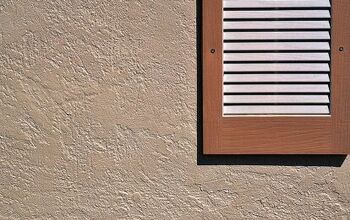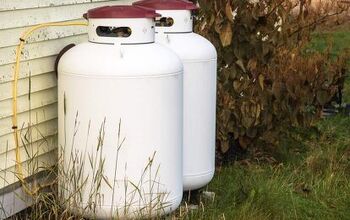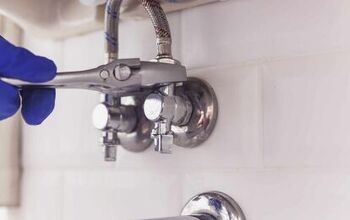5 Good Substitutes For Electrical Tape

Electrical tape is a valuable tool for any home DIYer. This type of tape insulates anything that conducts electricity and is commonly used to wrap bare wires or insulate cables. Electrical tape has properties such as low conductivity and high heat resistance, making it an excellent choice for minor repairs.
Sometimes a person may come across a bind where they do not have electrical tape handy. Perhaps they may not have known they would be getting into electrical work when doing a project. So what can you use as a substitute for electrical tape?
Substitutes for electrical tape are as follows duct tape, wire nuts, friction tape. Others like heat shrink tubing and dielectric spray are also excellent substitutes for electrical tape. Many people may not have a specific item when needed, and they may have another item handy around the house or garage. We will outline the different alternatives to electrical tape and their respective uses and limitations.
Related Content: How To Remove Duct Tape Residue | Where To Buy Flex Tape | Can Neutral And Ground Wires Be Connected Together?
What is Electrical Tape?
Electrical tape is a coated adhesive with insulating properties. It is typically black and is famous for use in electrical work, but it does come in additional colors. Some common uses include taping wires together or insulating objects such as outlets.
Electrical tape will not burn due to overheating and is not conductive, allowing it to safely adhere to electrical wiring. Electrical tape is most frequently coated in vinyl which is flexible and durable.
Sometimes it is coated in rubber which is less flexible but is effective at insulating the wires due to its non-conductive properties. It also effectively prevents moisture from reaching the wires and corroding them.
Benefits of Using Electrical Tape
Electrical tape also protects wiring from corrosion. This can occur from moisture which the tape blocks. However, deterioration can also be caused by certain chemicals.
A benefit of electrical tape is that it is resistant to some acids that would damage electrical components. The wires remain completely safe when wrapped appropriately. Electrical tape is sometimes used to color-code wires of the same color. These colors can signify the charge of a wire, whether it is neutral or not. The color can also dictate the voltage of each wire or system.
Limitations of electrical tape include its limited strength. Compared to alternatives such as duct tape, electrical tape is less durable. When stretched, electrical tape will snap at a certain point.
It is also not as adhesive as other alternatives such as duct tape, so it is best for temporary repairs. Its true value lies in its insulating properties.
When To Use Electrical Tape
There are different kinds of electrical tape rated for different uses. 33+ electrical tape is the most common rating and is intended for use on cables and wires up to 600 volts. Most electrical tape is safe for temperatures up to around 220 degrees Fahrenheit.
When you use electrical tape, stretch it as you wrap and wrap it tightly. This will provide insulation and maintain the secureness of the tape around the wire. Electrical tape should only be used for minor repairs. The tape is effective at covering bare wires and bundling cables together. Its insulating properties can also prevent components or pipes from freezing in cold temperatures.
However, it should never be used as a bandage for large-scale repairs that require an electrician. Electrical tape should also not be used to create permanent connections.
The tape is not secure enough for this purpose, as user error could result in a loose application. If this happens, wires can become disconnected or come loose, creating a fire hazard.
5 Substitutes for Electrical Tape
Listed below are the common substitutions for electrical tape most people use. Each has an explanation in detail as to why they can be a good fit should you come into a bind.
Duct Tape
Duct tape is a common substitution for electrical tape. Like electrical tape, it is non-conductive and therefore offers insulative properties. However, unlike electrical tape, duct tape is not rated for electrical use.
This means there is no way to be sure that the duct tape works with your system’s voltage. With electrical tape, it is easy to choose the proper product if you know the voltage of the cables you are repairing.
Additionally, the electrical tape holds up against moisture and heat, which duct tape is not guaranteed to do. The ratings on electrical tape offer more security for your project.
Duct tape can be a safe alternative to electrical tape when working with low voltage objects or environments with low moisture. Duct tape should only be used in indoor projects. An example of when to use duct tape is to repair a small item such as a flashlight or charging cables for handheld devices.
Wire Connectors
Plastic wire connectors are also a suitable replacement for electrical tape. Since electrical tape is frequently used to wrap wires together or insulate bare wires, these connectors will hold wires together.
They are easily removable for use on other electrical projects. Other wire connector methods include zip ties or Velcro straps, which can bundle wires together as long as they are not exposed. Another type of wire connector is wire nuts. These are caps that twist onto the end of stripped wires. They are coated in insulating material or made from rubber.
They are threaded on the interior to create a secure connection to the wire. Wire nuts are used to connect wires together, creating a more permanent connection than electrical tape.
Heat Shrink Tubing
Heat shrink tubing is a flexible tube usually made from polyolefin. This tubing comes in rolls or in precut sizes. To use, thread the wire you want to insulate through the tube.
Then use a heat gun or a hairdryer to shrink the tubing around the wire. Heat shrink tubing can also be used on wire connections. For this, slide the tubing onto one wire, then solder the wires together. After soldering is finished, slide the tubing over the connection and shrink it to seal the wires. Heat shrink tubing is best used for small applications rather than household-wide electrical wiring.
This alternative to electrical tape is composed of low conductivity material and can be waterproof if properly shrunk and sealed during application.
Friction Tape
Friction tape is a generally sufficient substitution for electrical tape. It is made of cloth coated in a rubber adhesive. Like electrical tape, it is insulating and can be used on electrical wires. However, friction tape is sticky on both sides of the tape, so it can secure itself when wrapped multiple times.
You may have used friction tape before or seen it in sports. It is often used to wrap the grips on items such as racquets or handles.
Prior to the advent of electrical tape, friction tape was the most used adhesive by electricians. Over time, it has been replaced by electrical tape, but its similar properties make it a helpful substitution in a pinch.
Dielectric Spray
Dielectric spray coats the tape providing an extra layer of protection and insulation. While not a substitution for electrical tape, it can provide additional benefits when used in conjunction with electrical tape.
Follow the directions on the bottle for application and make sure no wires are live when spraying. Find out where you can find Flex tape.
Never Use Masking Tape As a Substitution
Masking tape is a poor and even dangerous substitution to make for electrical tape. Masking tape is famous for its use in painting projects. It does not leave behind residue and is easy to remove from walls.
Masking tape does not have the adhesive quality necessary to repair electrical wiring and should only be used for temporary projects. Additionally, it does not have insulating properties. Masking tape is also not waterproof or weatherproof. It will do a poor job protecting your wires from moisture.
The only use for masking tape would be to color-code wires that are not bare, as it should never be placed on exposed electrical components.
In other words, wires are already coated with insulation. However, as mentioned before, electrical tape is famous for this use due to its many colors and long-lasting properties.
Warnings to Heed
When working with electrical tape or any of its alternatives, never work on live systems. All devices and outlets should be unplugged or turned off before you begin repairs. To be safe, it is recommended to turn off the relevant breaker in your home. So do not forget to shut down one of your devices.
If you use electrical tape or one of the substitutions in this article, avoid covering the area with insulation. If the objects you wrap the tape around become very hot, the insulating properties will prevent a hazard.
However, the addition of insulation can increase the heat, and often insulation is flammable. This creates a dangerous risk for fire.
Related Questions
Can you use electrical tape or these substitutes outdoors?
Electrical tape will last outdoors and is weatherproof due to its coating. If using outdoors, choose black electrical tape to protect the wires from ultraviolet radiation. Other substitutes like duct tape can fade and disintegrate.
How long does electrical tape last?
Five years is the shelf life of most electrical tapes. When in use, electrical tape is very durable and long-lasting as it does not degrade easily. However, over time the rubber versions will break down and lose some of their elasticity.
How much is electrical tape?
The average price is between $3 and $5 a roll.
Related Articles

We are a team of passionate homeowners, home improvement pros, and DIY enthusiasts who enjoy sharing home improvement, housekeeping, decorating, and more with other homeowners! Whether you're looking for a step-by-step guide on fixing an appliance or the cost of installing a fence, we've here to help.
More by Upgraded Home Team










![The 5 Best Angle Grinders – [2022 Reviews & Buyer's Guide]](https://cdn-fastly.upgradedhome.com/media/2023/07/31/9071326/the-5-best-angle-grinders-2022-reviews-buyer-s-guide.jpg?size=350x220)



![10 Best Cordless Leaf Blowers – [2022 Reviews & Ultimate Guide]](https://cdn-fastly.upgradedhome.com/media/2023/07/31/9070789/10-best-cordless-leaf-blowers-2022-reviews-ultimate-guide.jpg?size=350x220)












